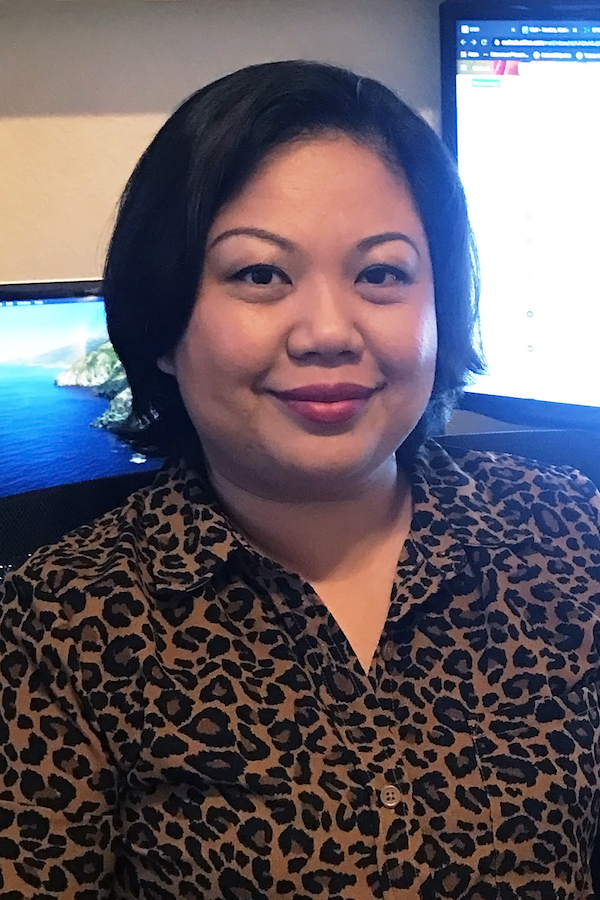UTEP Hybrid Program Produces First Ed.D. Graduate
Last Updated on June 23, 2020 at 12:00 AM
Originally published June 23, 2020
By Daniel Perez
UTEP Communications
The first fruit was harvested this spring from a highly innovative off-site doctoral program that The University of Texas at El Paso initiated three years ago in collaboration with El Paso Community College (EPCC) and the Socorro Independent School District (SISD).

Marianne Torales, Ed.D., an intervention coach at SISD’s Montwood High School, was the initial graduate of the program that UTEP created to assist with the professional development of fellow educators and administrators at the other academic entities.
The University sent faculty members from its Department of Educational Leadership and Foundations (EDLF) to facilities in the EPCC or SISD headquarters to offer weekly courses to cohorts of up to 15 students made up mostly of administrators and tenure-track teachers. This augmented their online instruction. Graduates earn a Doctor of Education degree in Administrative Leadership in one of three specialties: central office and school site leadership, leadership in higher education and other educational settings, and leadership in educational policy and evaluation.
Torales, a 22-year educator who has spent time with Region 19 and the area’s three largest school districts, lauded the program for its accessibility, camaraderie among students, faculty expertise and relevant subject matter that immediately helped her to become a better employee and instructor. She highly recommended it to those who want to learn more about leadership and how to affect change at a campus.
“It is a very challenging program that requires a dedicated student,” said Torales, a native of the Philippines who earned her Master of Education degree at UTEP in 2009. “It is worthwhile because you come out of it stronger and better prepared to serve and lead.”
The program’s first graduate is an outstanding example of a student who was motivated to expand her skills and knowledge to better serve others, especially her students, according to Penelope P. Espinoza, Ph.D., associate professor in EDLF and director of the college’s Ed.D. program.
Espinoza, who has led the program for two years, said that students have praised the program’s “cohort model” where they enter the program as a group, take the same courses and share common experiences as they navigate their doctoral journey together.
One of the program’s more important elements is the opportunity for students to share their research into unique issues faced by these institutions and develop thematic dissertations where they tackle a similar topic from a different academic perspective and provide practical policy recommendations.
Arturo Olivarez, Ph.D., professor and chair of EDLF, said this was important because many academic institutions compile data but do not study the material and “connect the dots” to understand how the information could benefit their institutions and their students. He referred to a current cohort member who is using data from EPCC and several area school districts to investigate how high school students do after they have received two types of formal coursework or tests that are supposed to prepare them for collegiate success.
Olivarez said his role is to guide the partnership so that it may continue to flourish and to mentor and advise some of the cohort students. The program’s second cohort has arrived at its dissertation stage and recruitment has started for a third cohort.
“This program is a signal from institutional leaders to their junior administrators and tenure-track faculty that they are interested in their professional growth,” he said.
Rodolfo Rincones, Ph.D., associate professor of educational leadership and one of the program’s key organizers three years ago, said the Texas Higher Education Coordinating Board officially approved the program in February 2019, which ensures the program’s integrity.
“We’re talking curriculum, professors, student selection, advising, everything,” Rincones said. “The coordinating board wants to certify that all students in the program have access to similar resources as those who attend the same classes at UTEP.”
Torales said her immediate plans are to continue to make positive contributions at her school and with SISD as an administrator, but she also is ready for any new challenges that her new degree could generate.
While program leaders always seek ways to enhance the experience, Espinoza said the only possible change this fall may be additional online courses due to COVID-19.
“Since most of our students are teachers and administrators, we will need to listen closely to them about how the pandemic has affected their students and environments, and what additional supports they need from us,” she said.
To learn more about this program, contact Espinoza at ppespinoza@utep.edu or Olivarez at aolivarez3@utep.edu.
